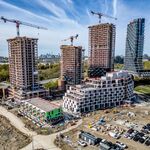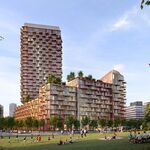Archivist
Senior Member
Whoaccio, the Toronto Star's not-so-long ago article showed quite definitively that while in 1970 most Torontonians fit into a middle income bracket, since 1970 the majority of census tracts have gone two ways: in a large number of neighbourhoods income brackets have increased by 20% or more, and in a large number of neighbourhoods it has decreased by 20% or more. See this map.
Many studies have shown that for all intents and purposes, household income has stagnated or decreased for the vast majority in Canada since 1970, and this is with extra income earners. I've seen these statistics from so many places and in so many books that they are simply not in dispute.
The causes of this, the effects on our society, are another issue and are open to dispute. But your comments about whether or not it is happening are simply uninformed.
Many studies have shown that for all intents and purposes, household income has stagnated or decreased for the vast majority in Canada since 1970, and this is with extra income earners. I've seen these statistics from so many places and in so many books that they are simply not in dispute.
The causes of this, the effects on our society, are another issue and are open to dispute. But your comments about whether or not it is happening are simply uninformed.
Last edited:




